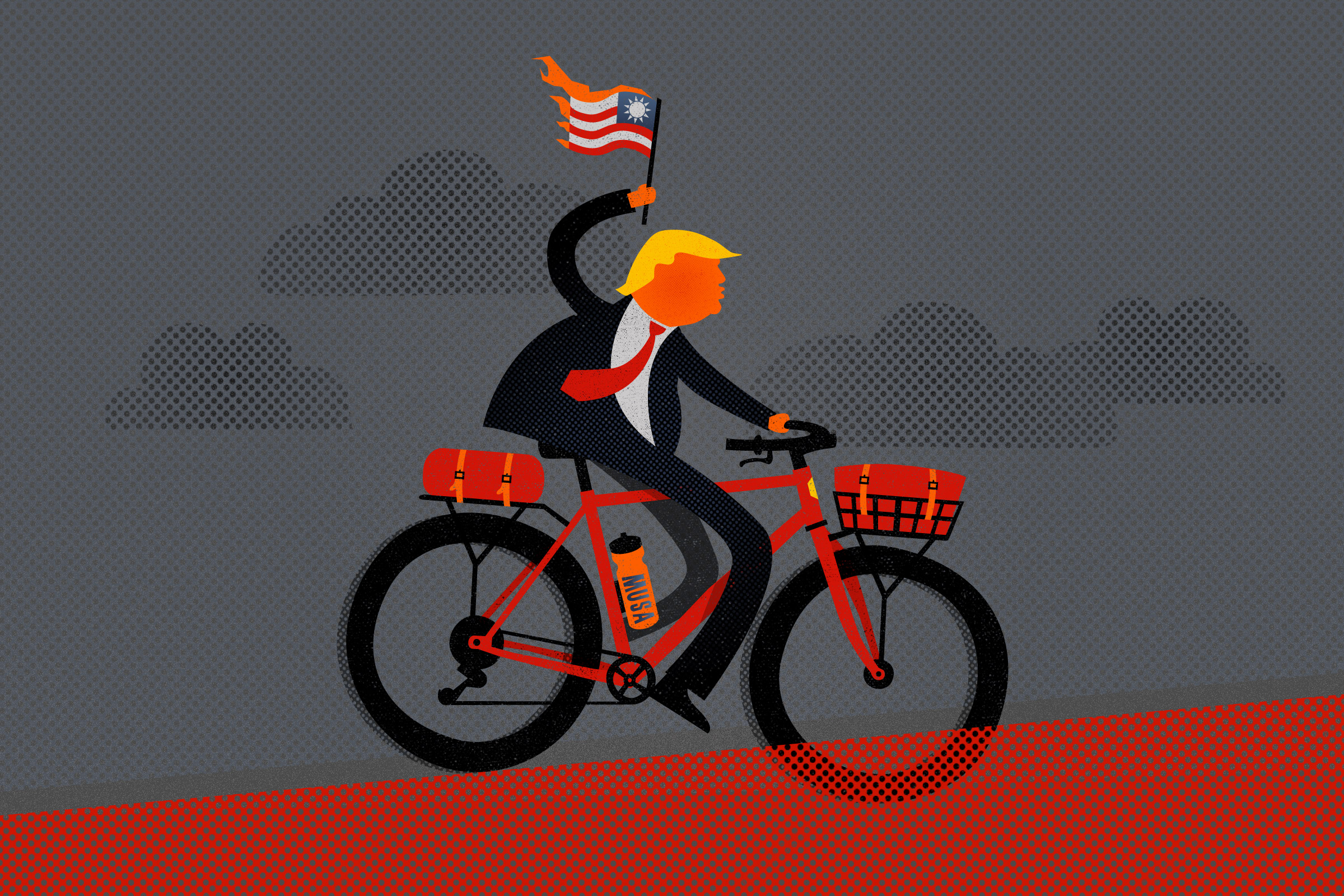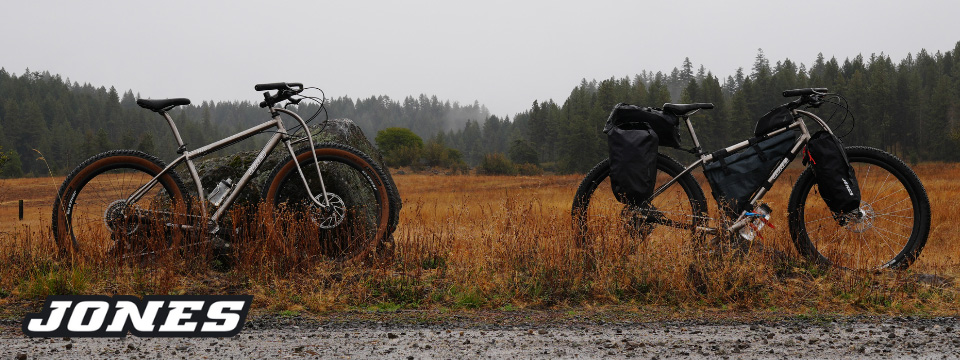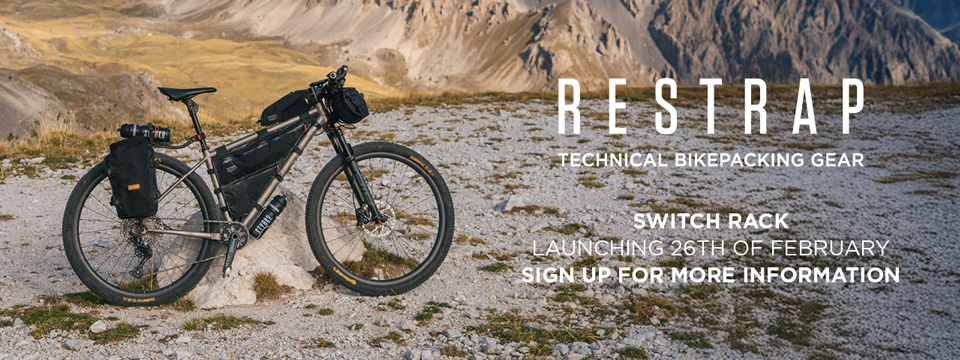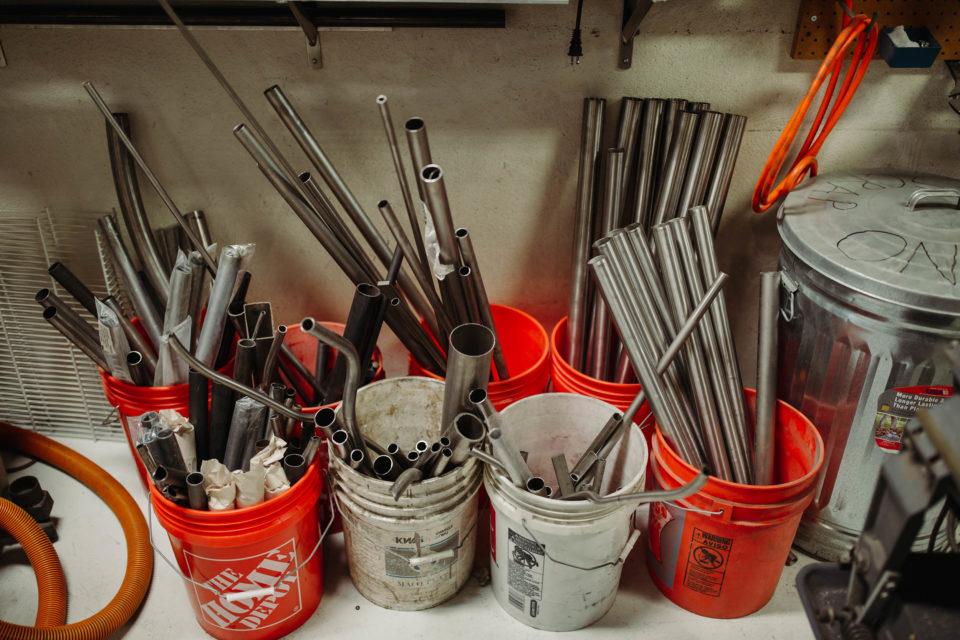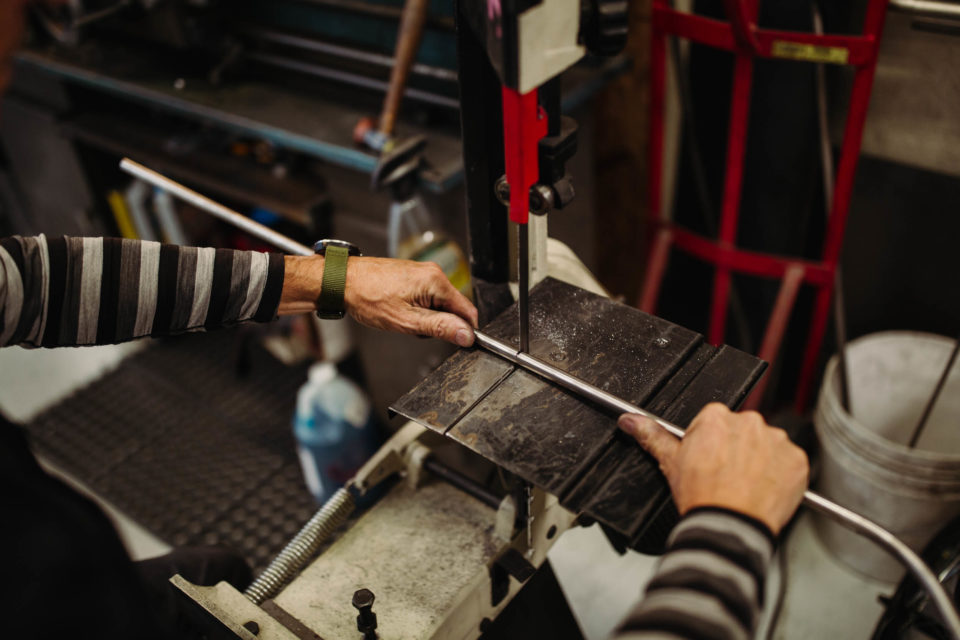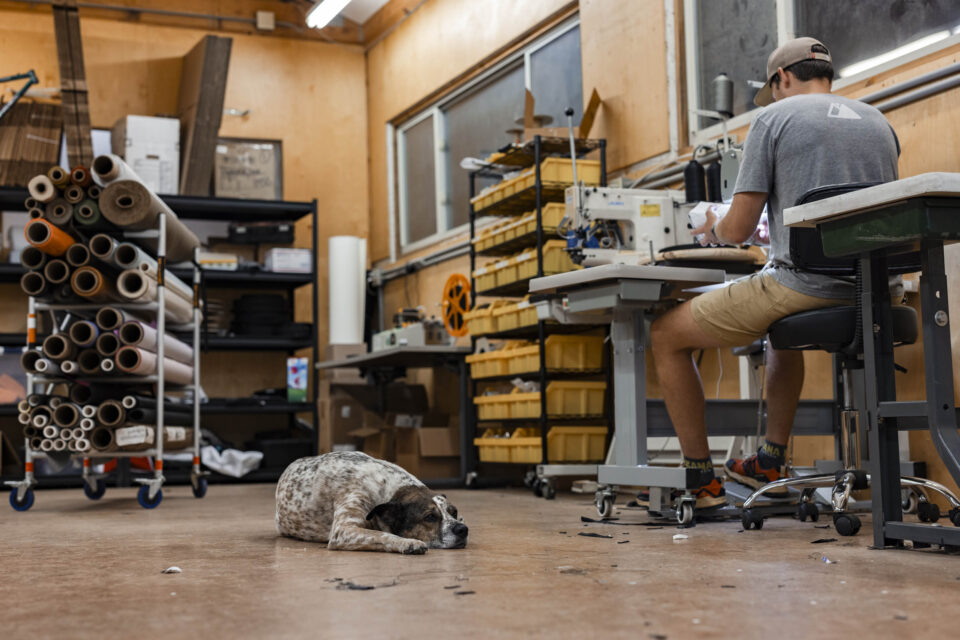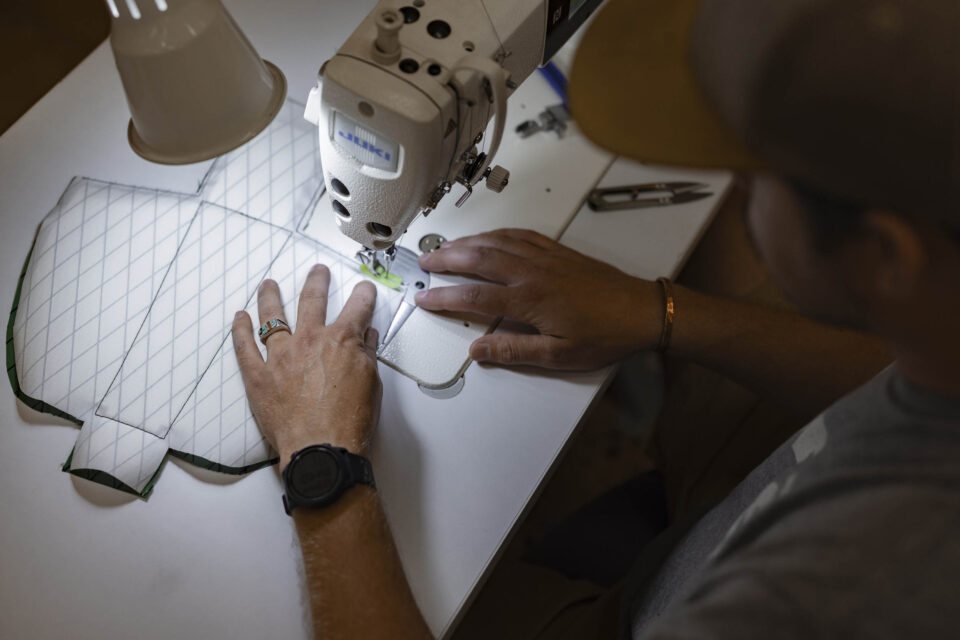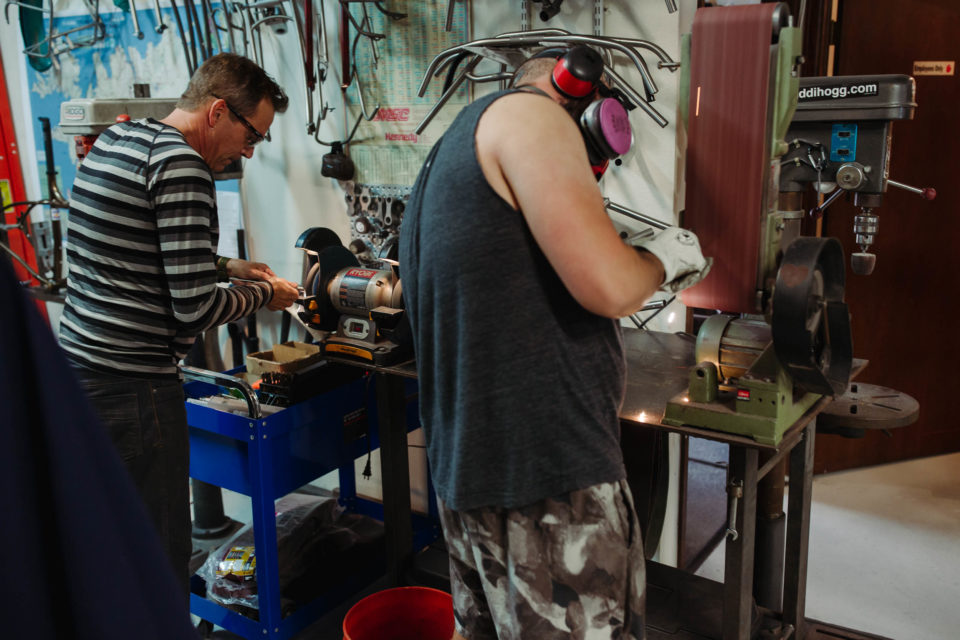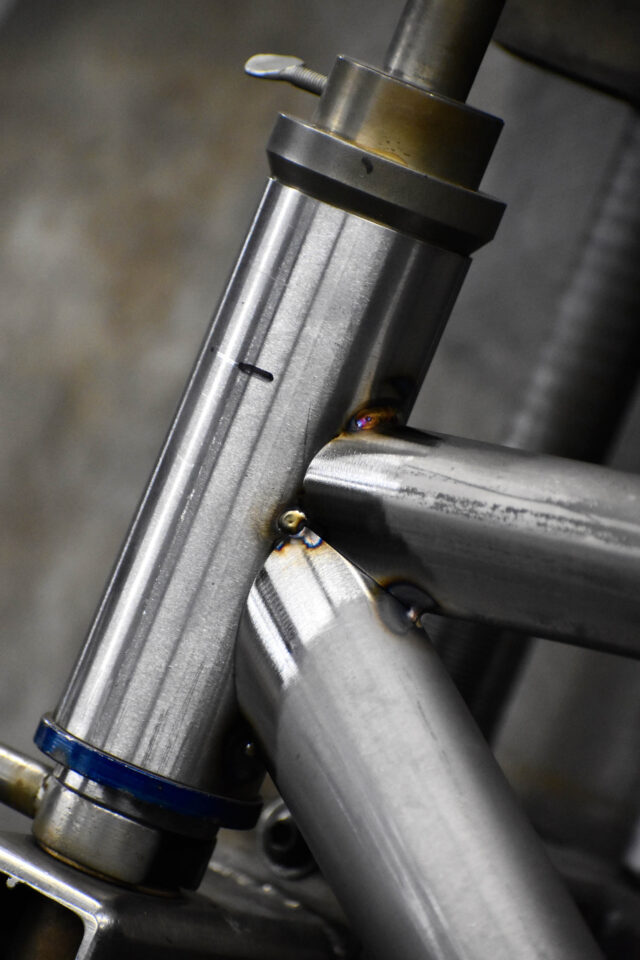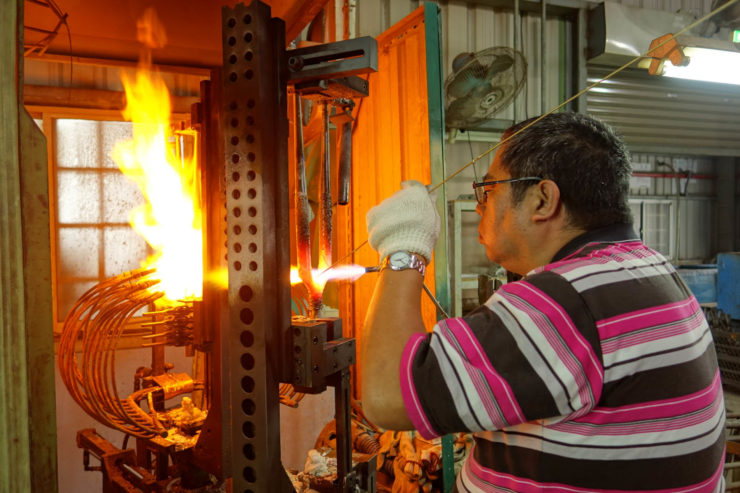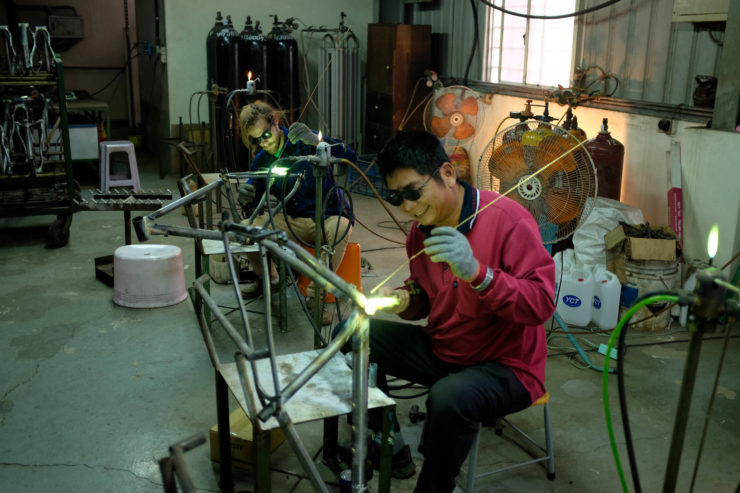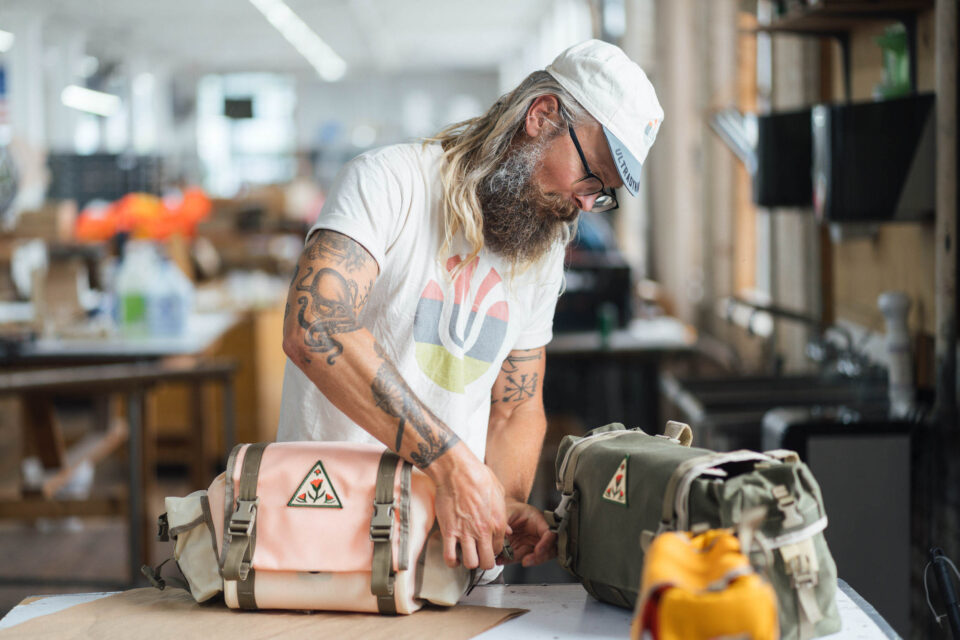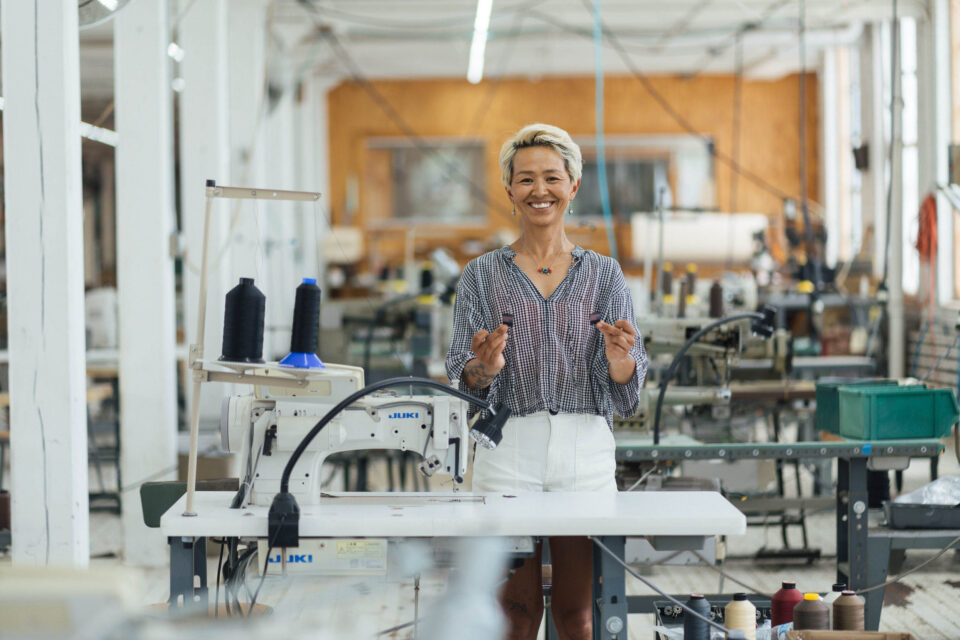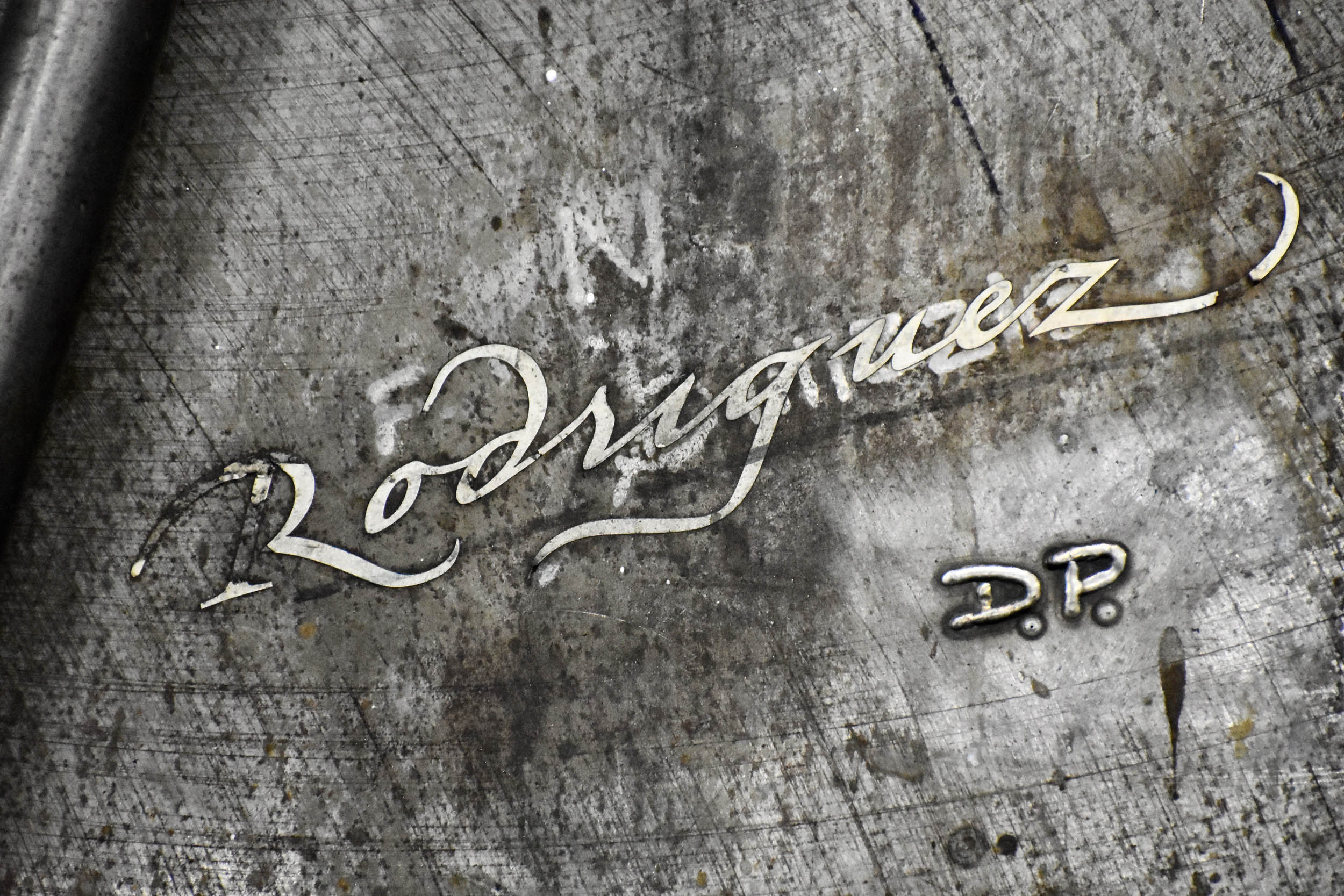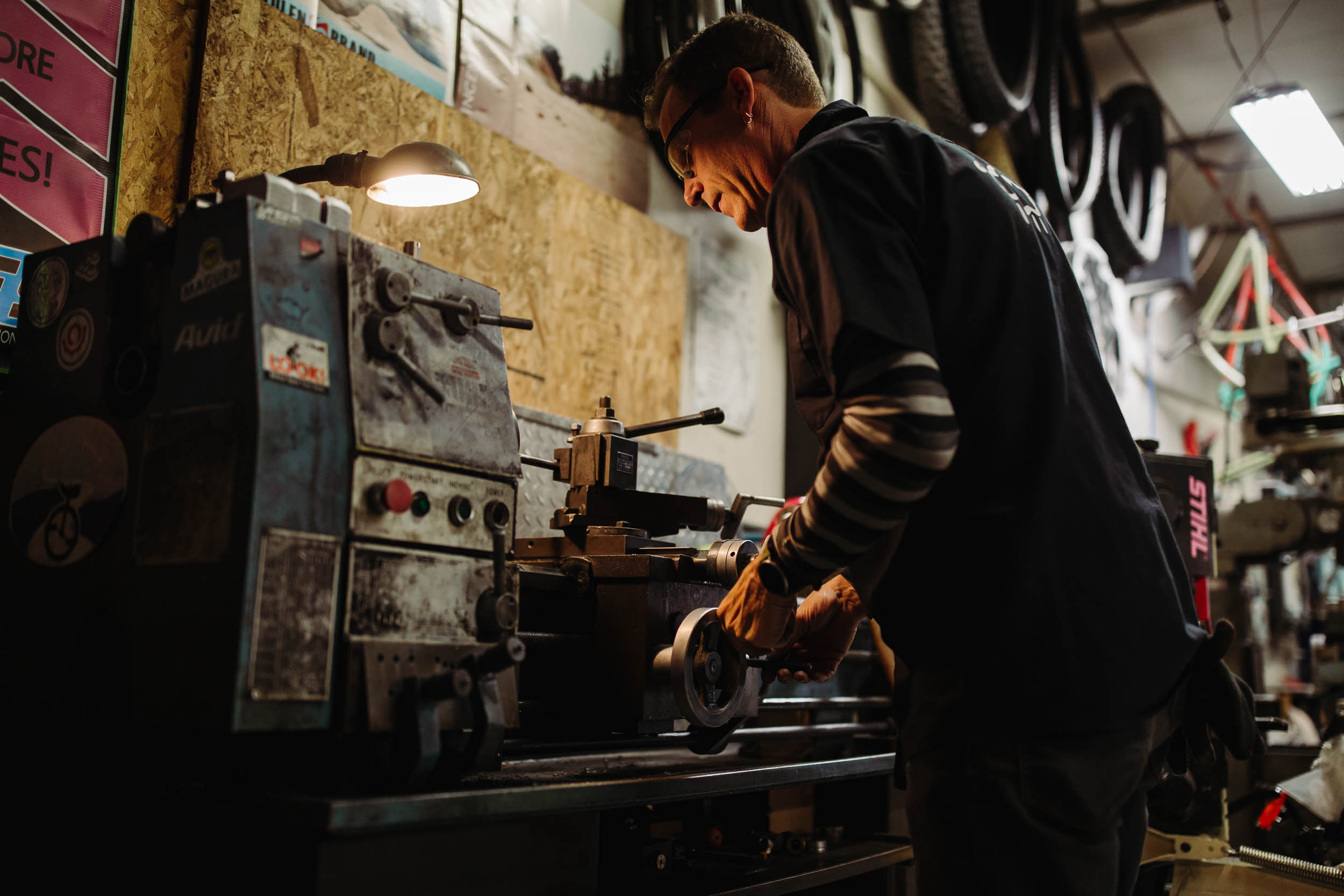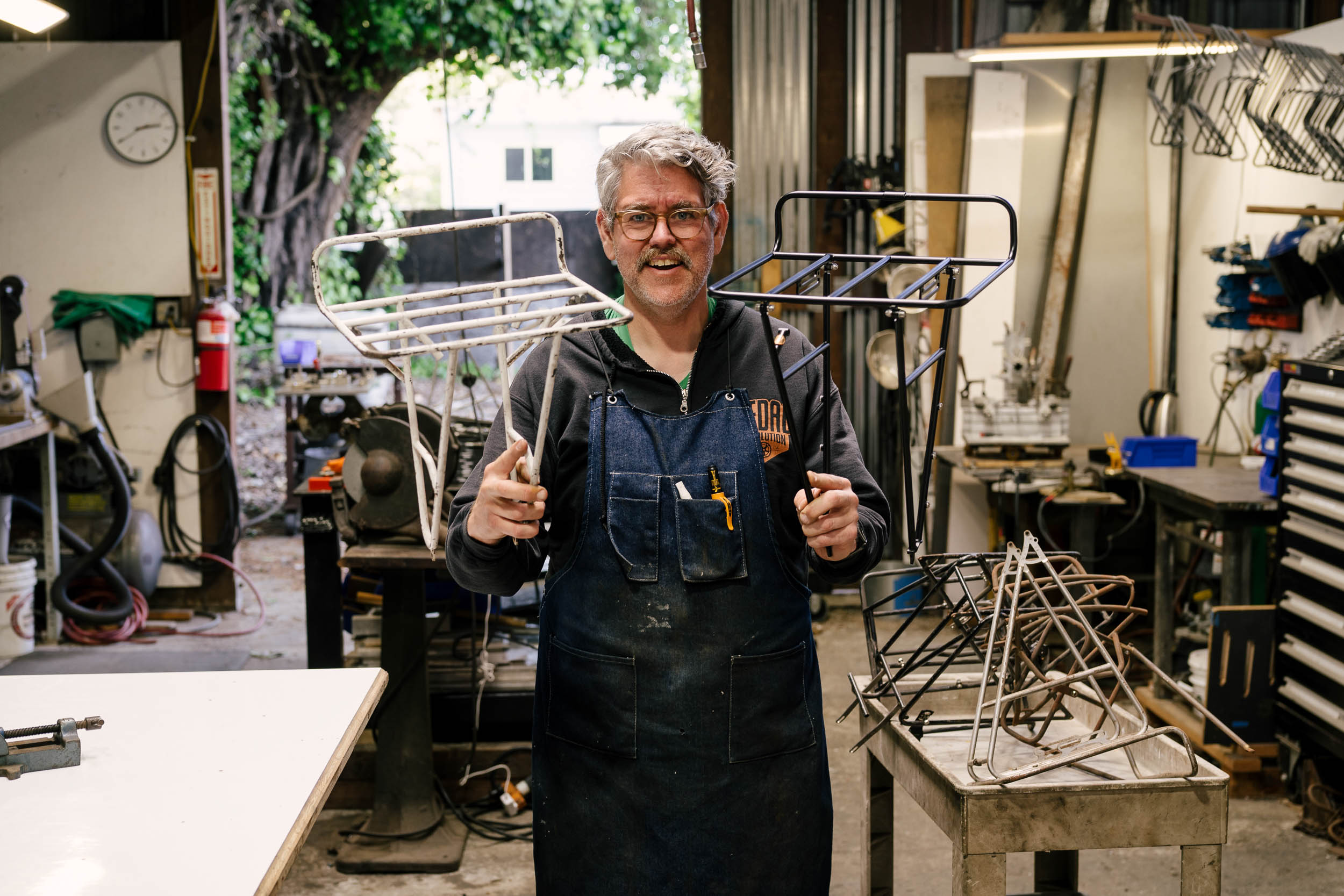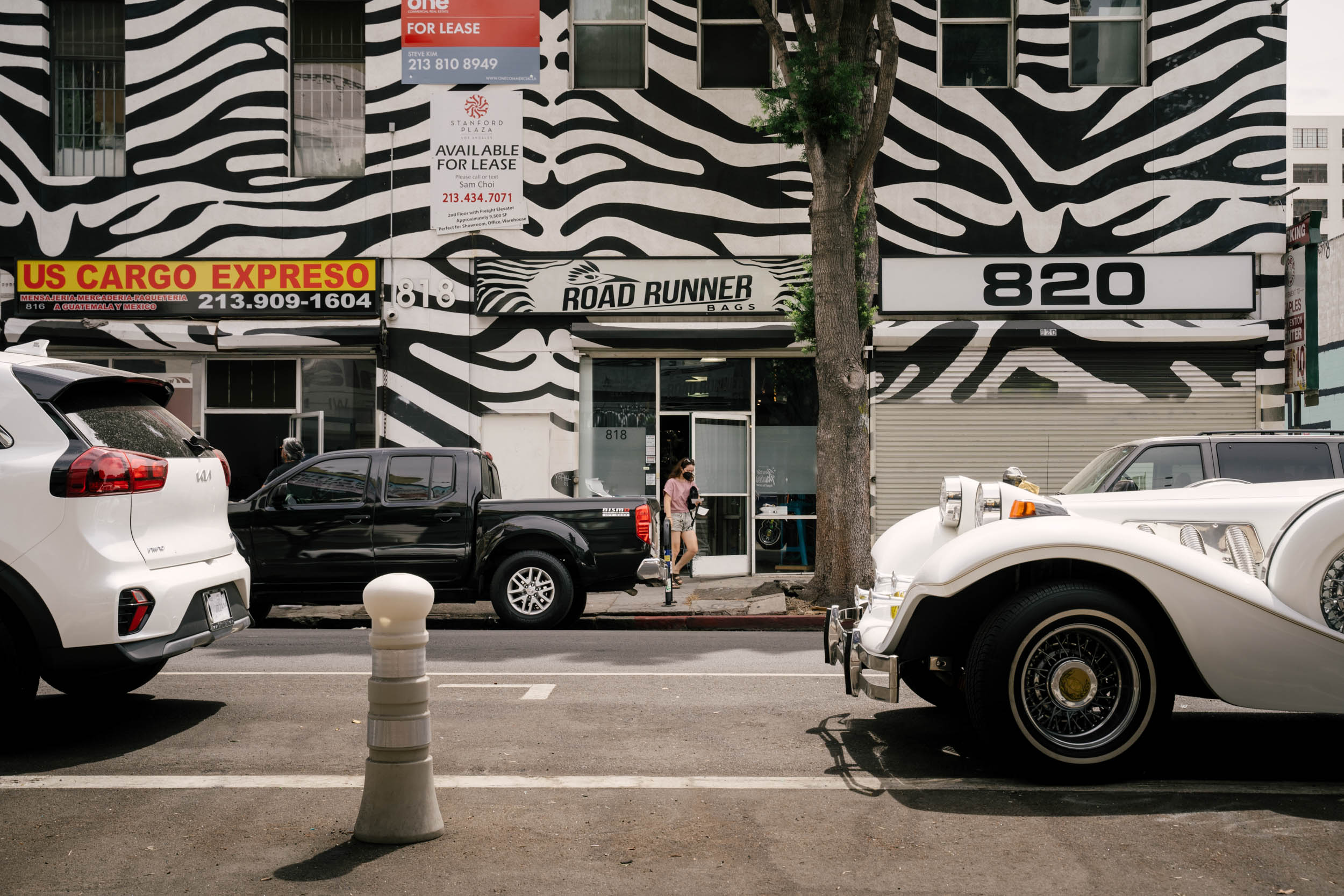Tariff Trouble: The US-Made Conundrum
With President-elect Donald Trump proposing aggressive tariffs on goods of all kinds from the moment he takes office, the bike industry faces an uncertain future. While many cyclists have long debated the function and place of US-made cycling equipment against their foreign counterparts, the rapidly changing conditions of the industry demand a more in-depth look at the very makeup of the broader cycling economy…
PUBLISHED Jan 16, 2025
Photos from various contributors and editors are used throughout the piece, but the opinions written here are those of the author alone. Cover illustration by Logan Watts.
As the bike industry has ramped up overseas production, so has the debate over the value of cycling goods made in the USA. While some claim that parts and products made within US borders not only maintain a higher quality of manufacture but also exist without the moral ambiguity of obscure labor conditions, others contest those sometimes lofty assertions. Though some argue that greater accessibility through lower price points is a positive for cycling and its broadly positive impact on the world, the reality is far more complicated.
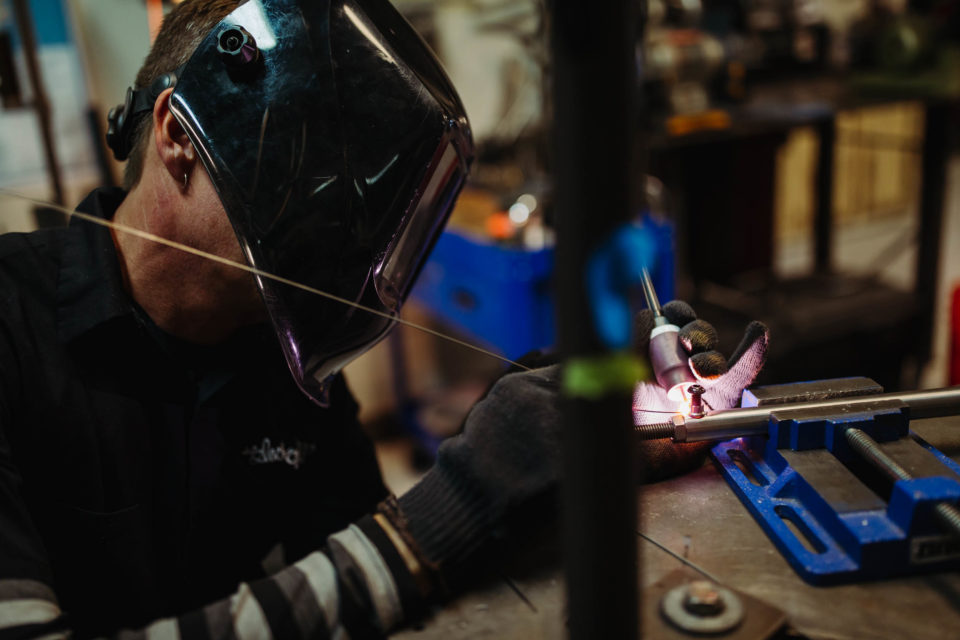
Particularly in today’s business environment, endlessly creating accessibly priced bikes and bike componentry loses its well-intended moral impetus when looking upon the waste often directly associated with our current level of accepted consumerism. Alas, not all foreign production facilities are made equal. Just as a MUSA product doesn’t guarantee quality or flawless labor and environmental conditions, a Taiwan or Chinese-made part doesn’t always mean it was made using exploitative labor practices in a factory that’s actively polluting without regulation. A good number of the production bikes that can be found on sites like ours, for example, are made in facilities where people make a living wage in conditions that rival those here in the West.
But, part of the reason the MUSA debate springs to mind is due to the influx of opinion pieces about whether President-elect Donald Trump’s proposed tariffs will significantly affect the bike industry. Invariably, tariffs and large-scale economic changes between nations will change our lives, but trying to predict what consequences those decisions will have right now is ambitious. Still, it’s clear the world is shifting. A US-dominated world order is no longer a certainty, and the endless adverse effects of that consequential change are unknowable. What is clear for the cycling industry, like many others, is that there will be a change in some of its most fundamental practices. Where debates about MUSA parts once largely grounded themselves in a sense of personal political aesthetic, it now seems cyclists in the West must materially understand the realities of that productive divide.
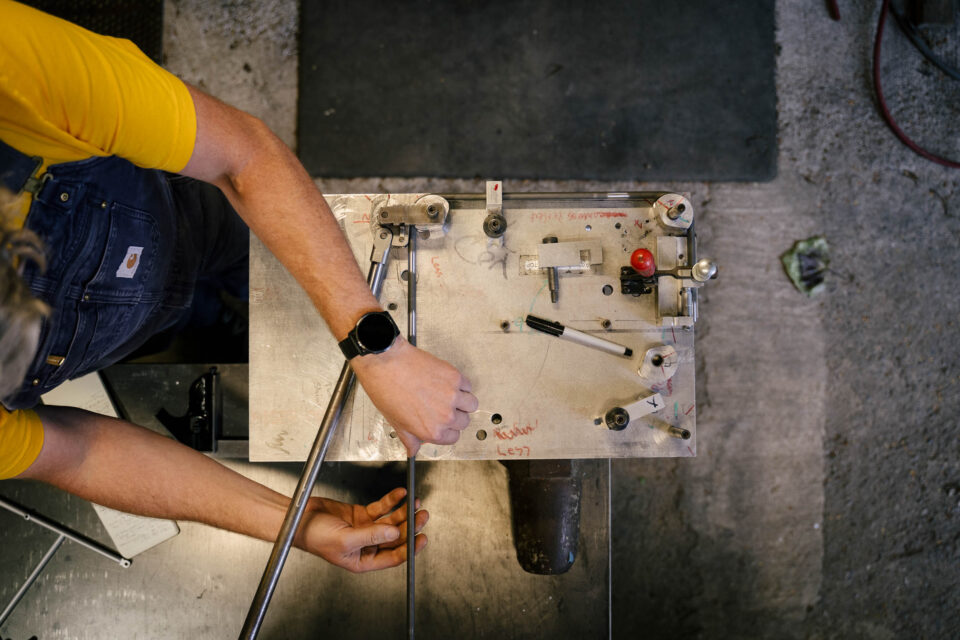
Having gotten a better idea about the ins and outs of the bike industry through visiting several companies, shops, builders, and small makers in the past few years, there’s a lot I’ve come to love about this specific corner of the market. Generally, when speaking to the niche much of our coverage here highlights, you learn that people aren’t in it for the money. Bikes are complex. Even at their worst, they take time, energy, and materials to manufacture such that they aren’t death traps. Partnerships overseas, while sometimes looked down upon, are ultimately what makes the business of bikes possible for smaller companies. Consider how many companies started off by making products in the US, but eventually integrated overseas manufacturing in order to survive. The industry is undoubtedly better of with their work as a part of the larger, production ecosystem, but would they have been as influential or impactful without those production partnerships?
While the moral core of what motivates some to elevate products made in the US is well-intentioned, I’ve often wondered about the redundancy of that sentiment. Being a bit more cynical: everything is marketing. It often seems odd to claim that a part is inherently better because of its manufacturing origin, especially when so much of the quality present in the industry is made by foreign hands. Ideally, every person adding value to a product is suitably reimbursed for their labor and contribution to the product. Currently, because of the disparity in wages and cost of living, that’s a reality we may already take some part in. And yet, what’s needed for MUSA parts to compete, given the much higher cost of labor, is some sort of belief that the product is superior. To a certain extent, it draws parallels to my time in craft coffee, wherein the supply chains, marketing, and coffee education present over the past decade have allowed some small-batch farmers and their staff to yield an appropriate margin for their specialty product while the people handing you your iced americano (with honey, try it) live below or dangerously close to the poverty line. When empire comes home, I suppose.*
*It’s important to note here that, both in coffee and bikes, this is a murky reality that isn’t always true. There are many instances in both trades where, despite a Western company’s best efforts, its foreign manufacturing partners—and thus everyone further down the supply chain—still benefit from unethically exploitative labor conditions.
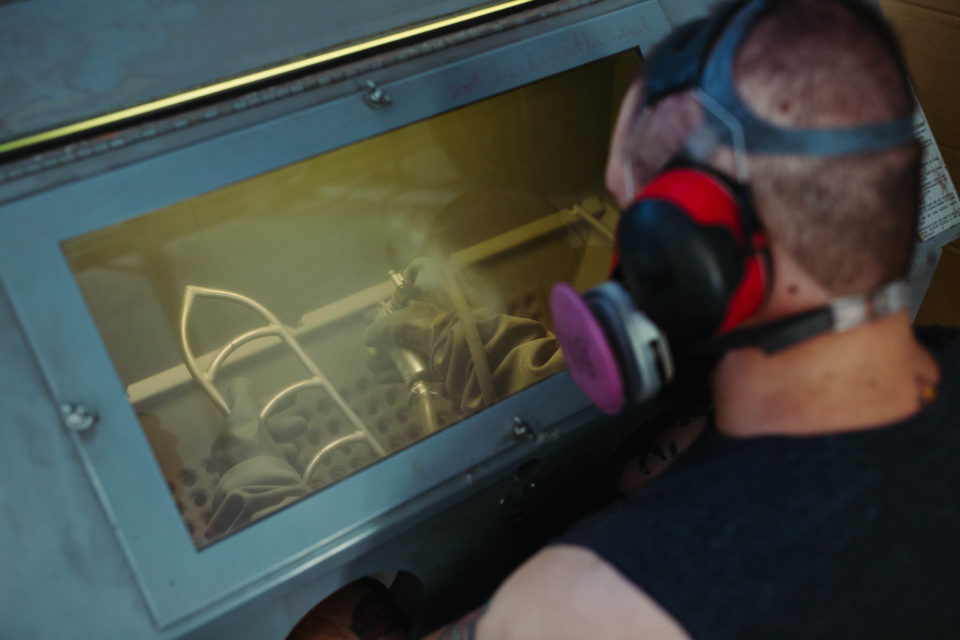
Given Trump has proposed tariffs ranging anywhere between 10 and 60 percent on any goods imported to the US, with larger penalties for those imported from China, Canada, and Mexico, the knock-on effects companies reliant on foreign production are bound to face would spell disaster for small-to-large-sized companies whose margins are already pretty thin. While some economists will point to the relative success of Trump’s first-term tariffs, the context and complexity of the US economic environment post-COVID is difficult to fully comprehend. More directly, while past tariffs encouraged foreign companies to establish manufacturing facilities stateside, creating the kind of infrastructure that could match what exists in Taiwan, China, or elsewhere takes time. Building and staffing said infrastructure with the know-how to produce a worthwhile product is costly and would require decades. Taiwanese frame builders have established a legacy of creating some of the best frames and cycling components worldwide. Bringing that to the States would take a very long time. It’s not impossible, but it’s hard to see a future for the cycling industry that doesn’t include the decades of expertise present in Taiwan, in the same way the manufacture of any mass-produced good would suffer without the skilled hands of those nowhere near the US.
With the production-level bike industry in jeopardy, Trump’s proposed tariffs force us to look at the nature of US-made products. As the lines between nations become all the more difficult to traverse, both purveyors of cycling goods and their customers will be forced to reckon with a proverbial reshuffling of the cards. Taking these proposed tariffs to their logical conclusion, the debate around the true value of MUSA parts isn’t just about a vague, nebulous idea of their supposed superiority. It’s about developing a deeper understanding of how small and large bike companies work so as to have a more informed perception of a product’s place that extends past aesthetic value. Material conditions create circumstances, and from circumstances arise industry. Because of the geopolitical conditions the US and other countries have created, most of the world’s productive power sits in Asia. Unfortunately for those who once benefitted from that sometimes one-sided relationship, Asia now has greater leverage on how things shake out on the world stage.
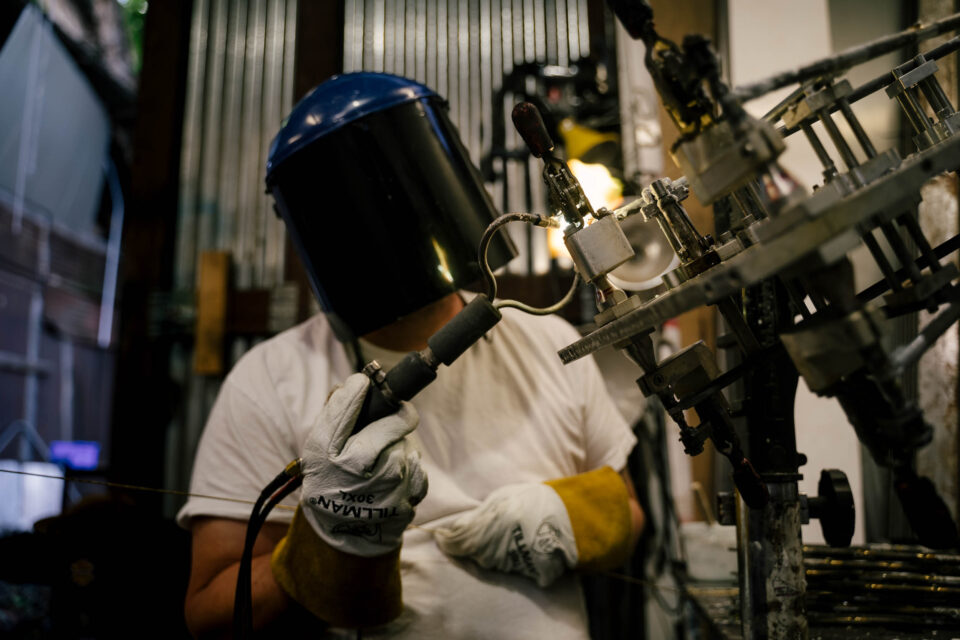
Moreover, and here’s the part I struggle to write, it’s important to gain a greater understanding of the context in which manufacturing exists to inform a better future. Is engaging and benefitting from the cheaper cost of labor overseas a modern copy of the colonialist practices that created such a significant gulf in the quality of life here versus elsewhere? Perhaps. But to then reactively decide we need to recreate the existing means of production stateside—a process that is bound to be incredibly harmful to the environment, not just through the (re)creation of the industry, but in working through the errors experts in Asia have long since perfected—because of a well-founded sense of guilt isn’t the way forward. Creating stronger partnerships and implementing ethical practices that benefit both laborers and the environment through existing supply chains seems a more feasible and morally amenable solution than a nation-specific turn toward manufacturing “self-reliance.” We, as a global society, have to both depend on and lift each other up. That doesn’t happen by deepening a divide. It happens by lessening it.
I think it’s also important for the bike industry at large to consider where it derives its identity from. As Cjell Moné detailed in his excellent piece regarding Western perceptions around nations of manufacture, “If you have a nice bike in your garage and you don’t know where it came from, chances are it was made by someone living 100 miles off the coast of China on an island the size of Maryland.” Most, if not all, of the bikes we fawn over are made in China or Taiwan, cloaked by Western marketing. All of the postive experiences derived by said bicycles then can, at best, be attributed to the collaboration of these two forces. Why, then, does one side seem to receive more of the plaudits? Why does one seem intent on suggesting it is in some way superior while benefitting from the craftsmanship of people like, as Cjell put it, “the Michael Jordan of fillet-brazing?”
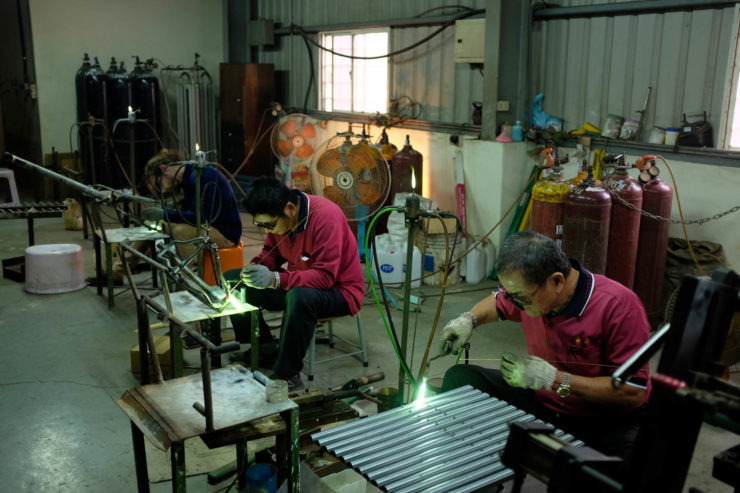
It’s difficult to comprehend just how much things will likely change in the next few years. Though it’s important to take Trump’s toxic rhetoric seriously, a lot tends to get lost in the politicization of his coverage. For example, claims regarding his concern over the flow of “drugs and dangerous immigrants” withstanding, there’s also the fact that the proposed tariff has, thus far, served as a bargaining chip in the relationship with Mexico’s president. More than likely, Trump is looking to address the construction of Mexico’s cross-national railroad because the very nature of shipping from the Pacific to the Atlantic—a monumentally important chokepoint the US has conveniently controlled since the construction of the Panama Canal—is transforming due to climate change. With a railroad across Mexico being the only viable alternative for cross-oceanic shipping, it’s one of the many seemingly constant variables of our world that’s up for renegotiation.
These are the kinds of previously unforeseen circumstances that will affect the very fabric of the world we’ve come to know. Where the MUSA debate was once a badge of superiority for those who could afford a more “ethical” choice, it’s one we have to gain a deeper understanding of in the shifting planes of today. Again, advocates of made-in-the-USA products may have been rooted in a sense of advocacy for small makers, but the material reality and radically changing circumstances of the industry perhaps demand a more nuanced position. If anything, to not entrench oneself in a sense of needless and ultimately divisive nationalism, patronizing small companies with ethically minded, well-founded manufacturing partnerships is probably better than flying any particular flag.
For example, earlier this year, when visiting Ronnie and Tenzin at their Nutmeg Nor’Easter event, we spoke to their desire to create US-made products. It’s what they’d been struggling with as the owners of Nutmeg Needleworks, a Connecticut-based manufacturing facility they’d come to purchase and run after utilizing the factory as customers. Their desire to make high-quality, long-lasting bags that distinguish themselves from the competition both qualitatively and stylistically is evident, but Ron also spoke to wanting to bring manufacturing back to his home region of Connecticut. “Nutmeg Country” once produced some of the first bicycles and had a proud history of craftsmanship that has since left the region, likely due to the cheaper labor cost overseas.
Having understood the motivations behind the blood, sweat, and tears put into these efforts, I think theirs is the kind of company worth patronizing. They believe in the process they’ve iteratively arrived at and seek to strike a modest balance between some semblance of a margin and the cost of goods and labor. But, in the same way that not all foreign manufacturers deserve to be tarred with the same brush lesser makers bring onto them, so too do those US makers who put far less care deserve to benefit from work people like Ronnie and Tenzin add to a label that reads “made in the USA.”

Ultimately, the conversation around the defining material conditions of the bike industry is a nuanced one. There’s often a glorification of US-made products because of the homegrown nature of their make and marketing. And that’s undeniably part of the appeal of those who have managed to keep the bulk of their manufacturing here in the States. It’s nice to know and patronize those smaller operations that foment the kind of community many of us have fallen in love with. However, the quality and legitimacy of those same products made overseas shouldn’t be overlooked for the sake of some misguided sense of patriotism now catalyzed by a neo-Conservative figurehead looking to maintain a US-led world order. In fact, I don’t think it would be unfair to say that while the West has always led the charge with regard to being the “face” of innovation in the cycling industry, a lot of the hard yards and material improvements we all enjoy are a result of those nowhere near a US border.
Most of the products we appreciate are brought to us by companies that have brokered long-standing relationships with manufacturers who maintain a quality that is, quite frankly, better than anywhere in the world. Though a general view toward degrowth and reduction in consumption through the patronage of smaller, quality-focused manufacturers is essential to building toward a better world, it’s a future that extends beyond borders. The widespread implementation of economic barriers doesn’t serve customers or manufacturers because it would likely cause an unnecessary and redundant chain reaction that wastes the benefits of the existing supply chain we utilize today. Though it certainly requires a fundamental restructuring such that all parts of the supply chain are better served and remunerated, the key to a better, more sustainable, equitable future lies beyond borders, not within them.
Wrap Up
Trump’s aggressive tariffs, irrespective of their motivation, bring the function of US-made cycling goods and their role in the greater bike economy under scrutiny. Though MUSA products often maintain an air of superiority for a variety of nebulous reasons, it’s important to dig into the context of how both domestic and foreign manufacturers work to deliver affordable goods to the market. By dissecting the nuances of how these productive powers work in tandem, it’s clear that a greater divide between the existing supply chain—particularly one fomented by the proposed tariffs—wouldn’t benefit customers or manufacturers. Moreover, examining our perceived biases about cycling goods made both within and outside US borders is crucial to building a more equitable, environmentally conscious, and accessible cycling economy.
Further Reading
Make sure to dig into these related articles for more info...
Please keep the conversation civil, constructive, and inclusive, or your comment will be removed.







